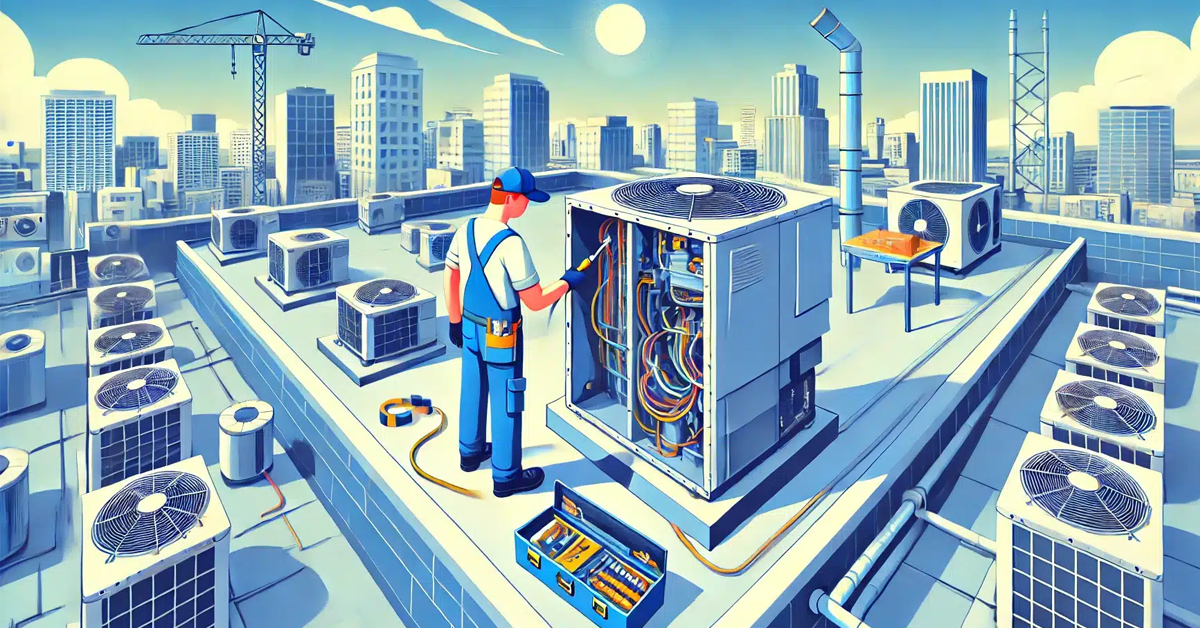High-rise buildings, whether residential or commercial, rely heavily on HVAC systems to ensure proper ventilation, heating, and cooling. Regular maintenance is crucial for these complex systems to function efficiently, reducing costs and improving indoor air quality. Let’s explore why preventive maintenance is essential, common HVAC issues, and best practices for keeping these systems in top condition.
How Preventive Maintenance Improves Efficiency and Reduces Costs
- Enhances Energy Efficiency – Well-maintained HVAC systems consume less energy, leading to lower utility bills.
- Extends Equipment Lifespan – Routine inspections and servicing prevent premature wear and tear, prolonging the system’s operational life.
- Reduces Repair Costs – Catching minor issues early prevents costly breakdowns and emergency repairs.
- Ensures Compliance – Many commercial and residential buildings must adhere to HVAC maintenance regulations to meet safety and environmental standards.
Common HVAC Issues in High-Rise Buildings and How to Prevent Them
- Poor Air Distribution – Inconsistent airflow can lead to temperature variations across floors. Regular duct cleaning and air balancing can resolve this issue.
- Clogged Air Filters – Dirty filters restrict airflow, causing strain on the system. Replacing filters every few months ensures optimal performance.
- Refrigerant Leaks – Low refrigerant levels reduce cooling efficiency. Routine inspections help detect and fix leaks before they impact performance.
- Thermostat Malfunctions – Faulty thermostats can lead to inefficient temperature control. Regular calibration ensures accurate readings.
- Water Leaks and Drainage Issues – Clogged condensate lines can cause water damage. Preventive maintenance includes clearing drain lines to avoid leaks.
Best Practices for Maintaining a Comfortable Indoor Environment
- Schedule Regular HVAC Inspections – Bi-annual professional inspections help identify and fix potential issues before they escalate.
- Monitor Indoor Air Quality (IAQ) – Installing HEPA filters and UV-C air purifiers improves air quality and occupant health.
- Upgrade to Energy-Efficient Systems – Consider upgrading older HVAC units to energy-efficient models for better performance and cost savings.
- Implement Smart Controls – Using smart thermostats and automated climate control enhances comfort and optimizes energy use.
- Train Building Staff – Educating maintenance personnel on basic HVAC care can prevent small issues from turning into major problems.
Conclusion
Regular HVAC maintenance is a necessity for high-rise buildings, ensuring energy efficiency, cost savings, and occupant comfort. By implementing a proactive maintenance plan, property managers can prevent breakdowns, improve air quality, and extend the life of their HVAC systems. If you need expert HVAC maintenance services, Element Building Systems is here to help. Contact us today for a customized maintenance plan!

